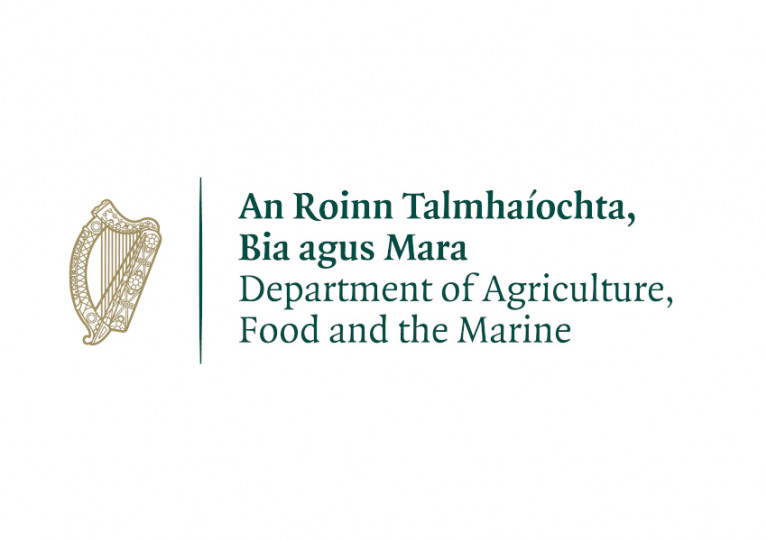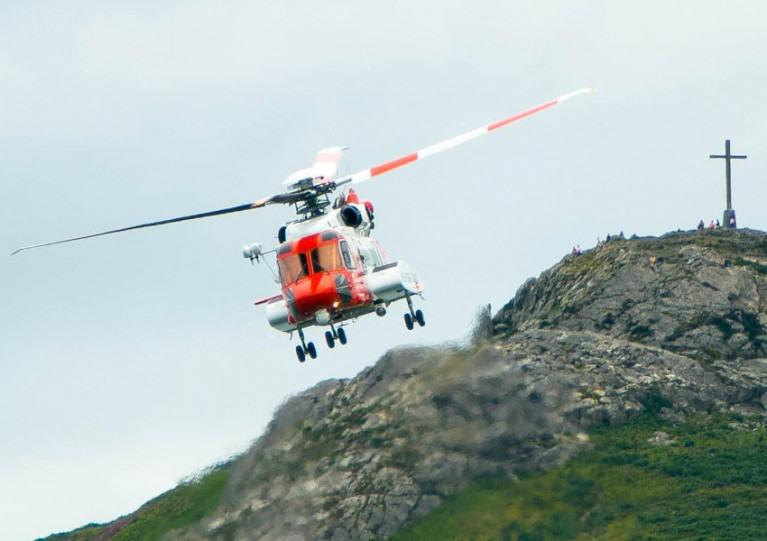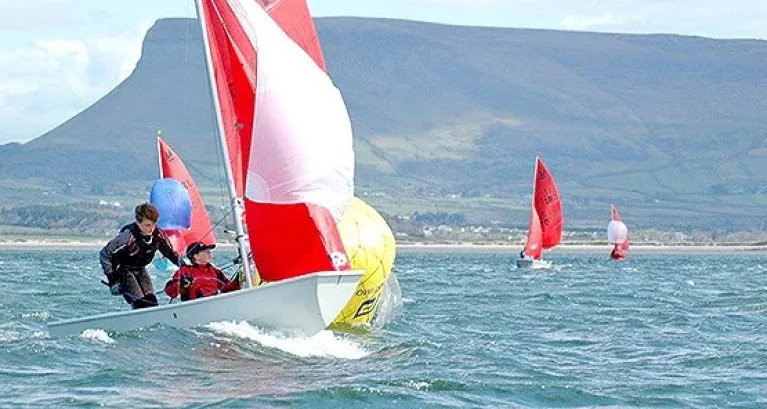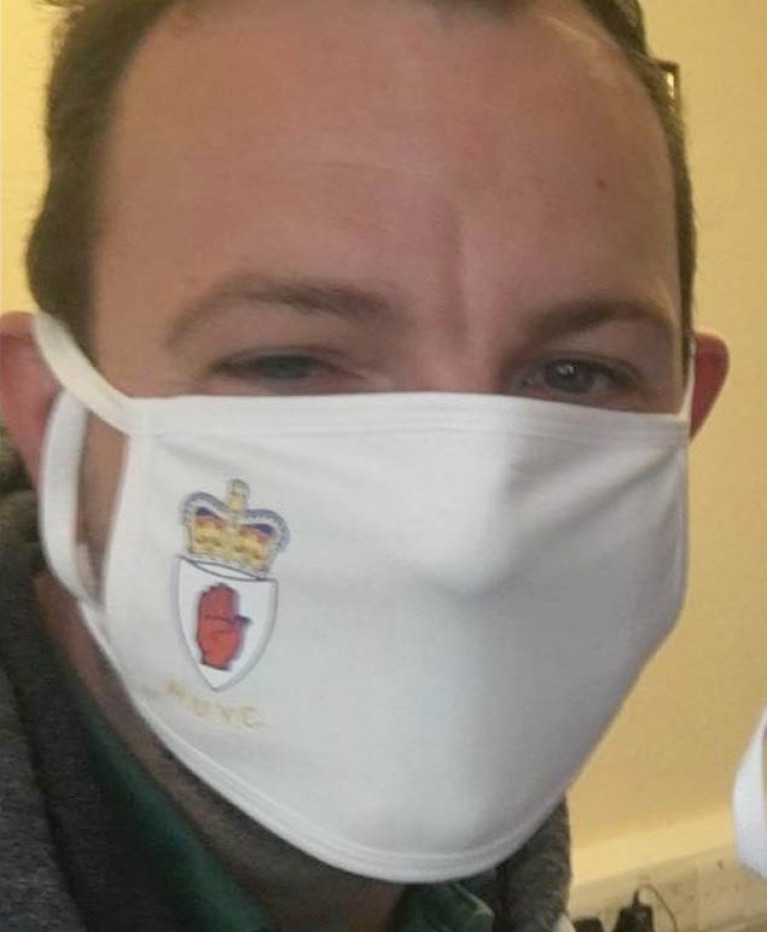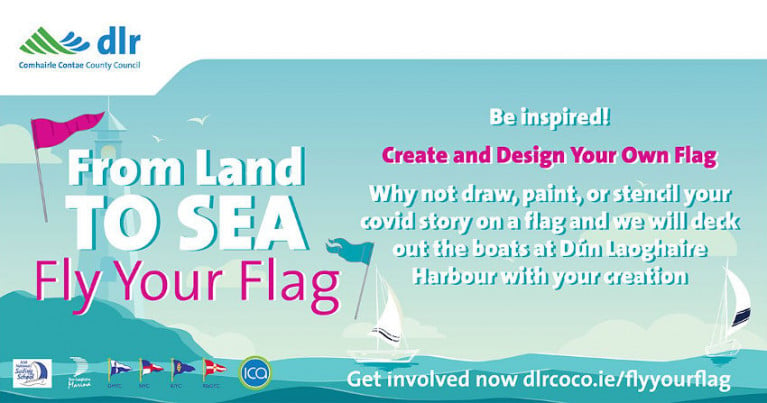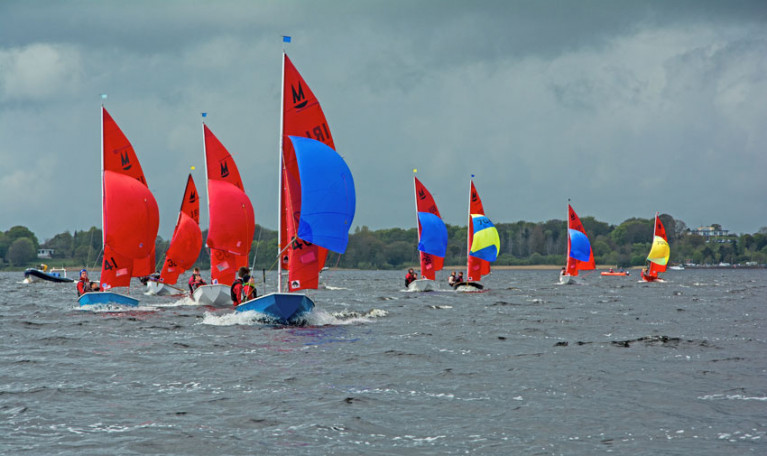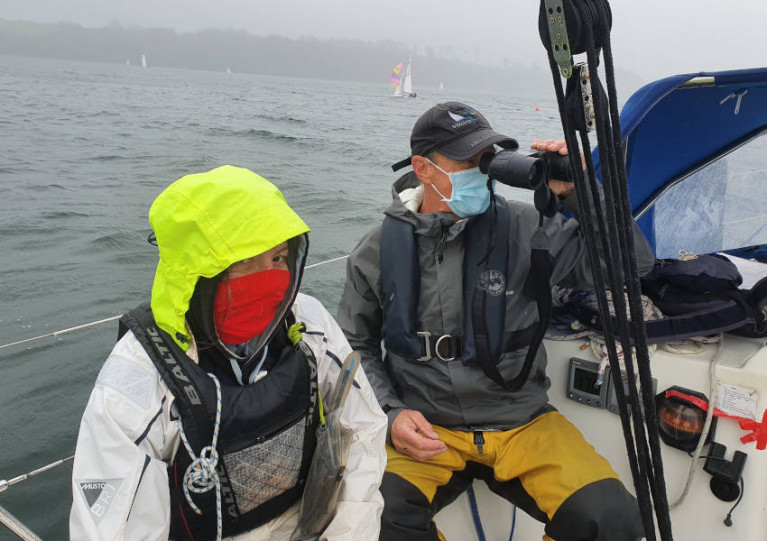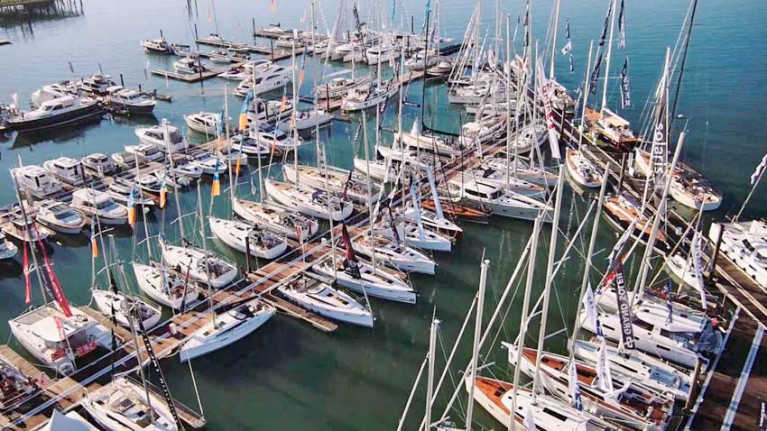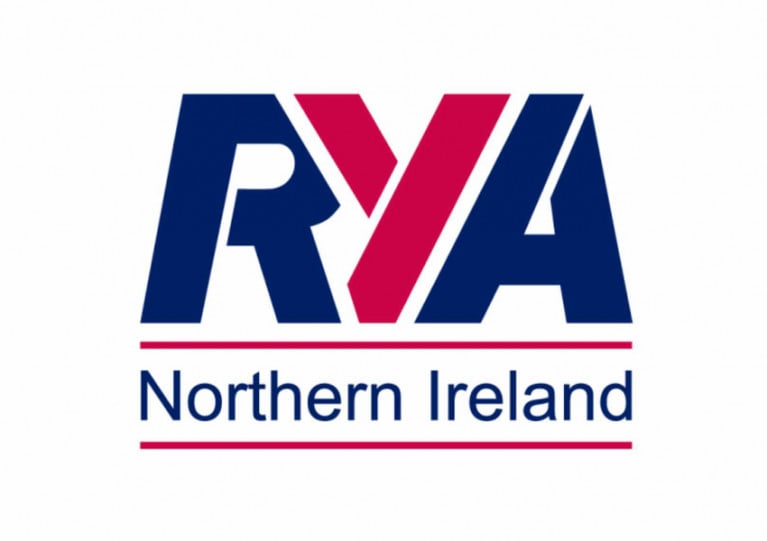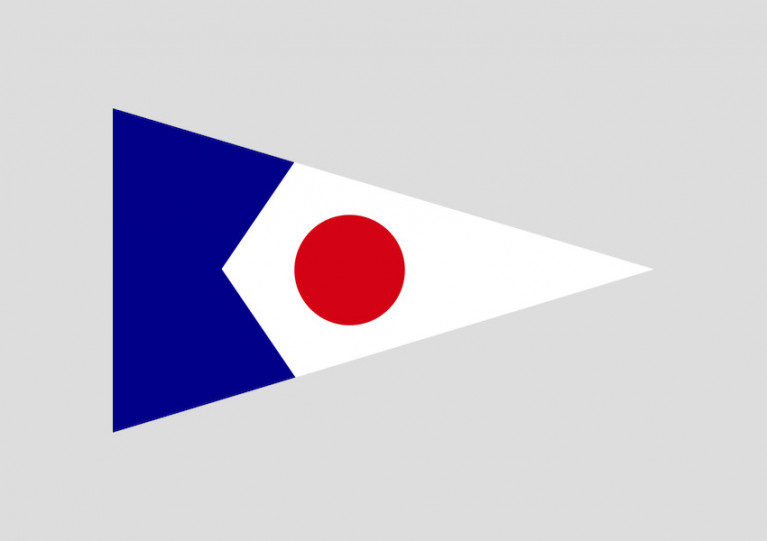Displaying items by tag: Coronavirus
Reminder On Covid-19 Guidance For Domestic Passenger Vessels
The Department of Transport, Tourism and Sport has issued a reminder of guidance for all operators of domestic passenger vessels to prevent the spread of coronavirus on their services.
This includes the Covid-19 Marine Travel Protocol and guidance for ferry services to offshore islands, the Return to Work Safely Protocol, and Fáilte Ireland’s Covid-19 Safety Charter.
Further details are included in Marine Notice No 32 of 2020, which can be downloaded below.
In the absence of this year’s Bray Air Display due to the coronavirus pandemic, the Irish Coast Guard’s Dublin-based helicopter Rescue 116 conducted a special fly-past to pay tribute to Ireland’s frontline healthcare workers.
The Sikorsky S92 helicopter took to the skies over the Co Wicklow town at 3pm yesterday, Saturday 25 July, on the same afternoon it flew to the rescue of a family of four stranded by the tide at Sandymount.
Rob Tatten, general operations manager of CHC Ireland, which operates the coastguard’s SAR helicopter service, was in attendance to make small presentation to Mr Paul Reid, chief executive of the HSE, and spoke before the event.
He said: “CHC, who operates the helicopter search and rescue contract on behalf of the Irish Coast Guard, has been taking part in the Bray Air Display every year. However due to the pandemic that wasn’t possible this year.
“But with the organisers of the show we said could we do something to recognise the phenomenal work of our fellow frontline healthcare workers, who like us continue to work 24/7, 365 days a year.
“So today, Rescue 116, while out training, will do a fly-past to thank those workers while we also make a short presentation to Paul Reid and other frontline workers to say thank you on behalf of CHC, the Irish Coast Guard, the aviation community and Bray Air Display.”
New Dates Announced For Mirror Nationals & Easterns
New dates have been announced for the Mirror Nationals and Eastern regional championships by Mirror Sailing Ireland following this summer’s disruption to the schedule amid the coronavirus pandemic.
Sligo Yacht Club, host venue for next year’s Mirror Worlds, will welcome youth sailing competitors for racing over the weekend of 15-16 August, with a practice race and free boat time on Friday 14 August. Further details will follow on the Facebook event page HERE.
Meanwhile, the Eastern regionals are now scheduled to take place on 19-20 September at Blessington Sailing Club. However a date is still pending for the Mirror Southerns at Lough Derg Yacht Club.
Previously it was confirmed that Lough Ree Yacht Club will host the Mirror Northerns on the weekend of 29-30 August, while the Mirror Westerns have moved to 3-4 October at Galway Sailing Club.
If we need any further indication of the longterm seriousness of the current public health precautions in the face of the coronavirus pandemic, then we’re told everything by the fact that sailing and yacht clubs are finally responding through acquiring stocks of facemasks with their club insignias or other club-related messages conspicuously displayed.
On the shores of Belfast Lough, the Royal Ulster YC (founded 1866) has been experimenting with a neat white model on which of course the Red Hand of Ulster is unmistakably prominent. And down in Crosshaven at the weekend, the 300-year-old Royal Cork YC – frustrated in many of its Tricentenary Celebrations – took delivery of its first consignment of customised masks from sportswear and accessory specialists Rashr, and these new items make a Tricentenary statement which will turn them into treasured mementoes in the years to come.
 Royal Cork YC customised facemasks from RashR are now available at the club
Royal Cork YC customised facemasks from RashR are now available at the club
In fact, if this corona-battling business goes on as long as many fear, we’ll see further developments with the various indicators of an individual’s ranking in the club hierarchy being incorporated in their facemasks. It’s a complex area - for those unacquainted with the arcane secret signals of club status, the word is that it’s all to do with swallow-tails and the display of balls.
Of course, if things go on for too long, we’ll stray into a dark world of extra-special equipment being supplied for the elite few. An acquaintance in Uruguay – which has, largely unnoticed, been exceptionally successful in combatting the pandemic despite being neighbour to disease-rampant bigger states – has forwarded this image. He tells us it may look like an army officer’s outfit, but it actually is a thinly-disguised Commodore’s De Luxe Coronavirus Kit which is current being developed and test-marketed in South America. For the elite only, to be bought out of club funds – the Commodores De Luxe Coronavirus Kit
For the elite only, to be bought out of club funds – the Commodores De Luxe Coronavirus Kit
More Time To Fly Your Flag At Dun Laoghaire Harbour
Dun Laoghaire’s local authority has extended the deadline to take part in its summer flag-making initiative.
As previously reported on Afloat.ie, locals of all ages are invited tell their own Covid-19 story with a flag of their own making.
Submitted flags will then be flown from the masts of boats among Dun Laoghaire’s sailing community which will display them in a flotilla on Dublin Bay.
Hundreds of flags have already been received by Dun Laoghaire-Rathdown County Council, but the authority said there are lots more stories to tell so they have pushed the deadline back to the end of summer.
For more details on how to take part and create your own flag, click HERE.
Mirror Northerns Move From This Weekend To End Of August
Mirror Sailing Ireland has announced new dates in August for the Northern regionals that were due to take place this weekend, 18-19 July.
Lough Ree Yacht Club will now host the Mirror Northerns on the weekend of 29-30 August as part of the Double Ree events.
Previously it was confirmed that the Mirror Westerns have moved to 3-4 October at Galway Bay Sailing Club.
Meanwhile, a date is still pending for the Mirror Southerns at Lough Derg Yacht Club as well as other events on the calendar disrupted by the coronavirus pandemic.
Guidance On Sailing Events During The Covid-19 Pandemic
A group of volunteer race officials have worked together to create a guidance document to help in planning and implementing safe and happy sailing events for the season ahead.
Irish Sailing has now published these guidelines, with details on planning, timelines, risk assessment and other considerations and controls for running both major national and smaller local events during the coronavirus pandemic.
This is an active working document and will be updated as Government guidelines changes throughout this pandemic. See the current full guidance document (as of 8 July 2020) attached below.
Southampton Boat Show Postponed To 2021
This year’s Southampton International Boat Show has been postponed to 2021 as the effects of the coronavirus pandemic continue to reverberate throughout the boating industry.
As International Boat Industry reports, the 52nd edition of the industry fixture — which had been scheduled for this September — has been pushed back a year, as current UK government guidelines suggest such large-scale events will not be permitted.
However, with Whitehall set to reveal a timetable for the holding of mass gatherings, British Marine hopes to hold an alternative, smaller-scale, outdoor event in lieu of this year’s Southampton boat show.
International Boat Industry has more on the story HERE.
RYA Northern Ireland has updated its guidance for boaters following recent announcements by the NI Executive.
Sport Northern Ireland officials confirmed that the sport sector remains in Step 2 of the Roadmap to Recovery until further announcements.
The situation in Northern Ireland is summarised as follows:
- Groups of up to 10 who do not share a household are permitted to take part in socially distanced outdoor activity. Recent announcements regarding increased group gathering sizes does not apply to outdoor activity, which remains at 10.
- Indoor facilities are to remain closed with the exception of restricted access to small shared facilities, eg storage area/toilet/through-ways. These are disinfected regularly with sanitation products available.
- Elite athletes are permitted to train indoors.
- Bars/restaurants in registered clubs will now be able to open alongside the hospitality sector. The NI Executive, at its meeting on 2 July, agreed to the restricted opening of restaurants and bars in private members’ clubs on 3 July. Guidance is available on the Tourism NI website. The Chief Scientific Adviser in Northern Ireland has also advised that a register of those present is kept on the premises. This will assist in contact tracing if necessary.
- Overnight stays onboard can take place with the easing of restrictions on second homes from 26 June.
- Social distancing remains at two metres unless you use mitigating measures, which could allow a reduction to a minimum of one metre. The NI Executive has reiterated that two metres remains the optimum. RYANI has updated Step 2 Guidance with this change and considerations for smaller craft.
RYANI chief operating officer Richard Honeyford said it “welcomes an outline timetable going forward that includes competitive sport potentially resuming from 17 July”.
He added: “This will have potential restrictions on numbers able to undertake activity at that time and facility access remains a key consideration on what may be delivered.”
The governing body for sailing in Northern Ireland has issued ongoing updates to clubs, training centres and engagement through its webinar forums.
Questions remain over more specific elements, however, and RYANI says it will continue to raise these with the Sports’ Expert Panel and working alongside the joint watersports group. This includes matters such as changing room access and guidance.
Full updated guidance and FAQs can be found on the RYANI’s Return to Boating webpage.
Permission for overnight stays in England from this Saturday 4 July means a “cautious” return to cruising for those who see their boats in the country, according to the UK’s Cruising Association (CA).
The move follows similar changes already introduced in Northern Ireland in line with the lifting of coronavirus restrictions in the Republic of Ireland.
Wales and Scotland are expected to follow suit by mid July, while Schengen countries throughout the European Union are now working to “get back in sync” with open borders and random testing.
England-resident owners with boats in other countries will be looking to announcements on ‘air bridges’ to allow travel to their vessels — which for now excludes popular cruising destinations like Portugal and Sweden.
The CA reminds that rules for those who travel abroad from England on their own boat are “not yet clear” as permissions and restrictions are on a frequency changing, country-by-country basis.
However, based on requirements in Spain, it’s expected that all on board cruising vessels must social distance at a minimum of 1.5 metres from anyone not a family member; use face coverings in close quarters, such as in shops or on busy streets; and continue hygiene measures such as regular hand washing. Fines of €100 are being levied in Spain for breaking these rules.
CA president Julian Dussek said: “Of course, I’m delighted that many of our members will be able to do some sailing this summer.
“But there are still many challenges in getting to and equipping your boat, sailing safely, and identifying destinations where facilities are open and you can enjoy your stay.
“That’s where the CA comes in. If our members keep posting their experiences on our forums, it could make all the difference for another member following in your tracks.”
The CA website has a section regularly updated with the latest information for cruising in Europe and the Mediterranean.


























